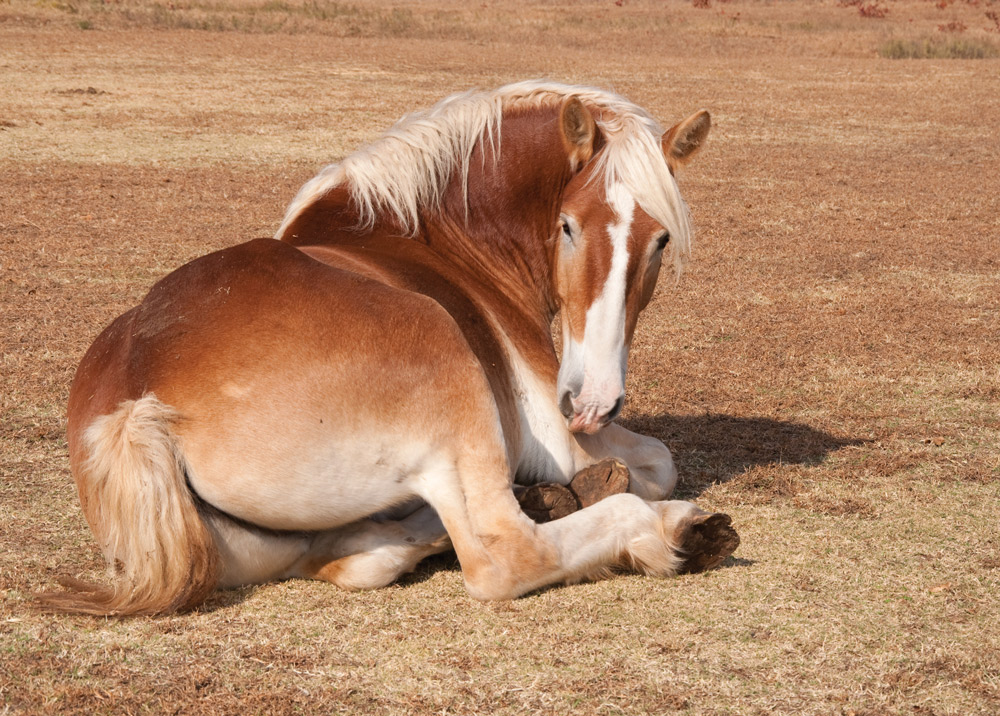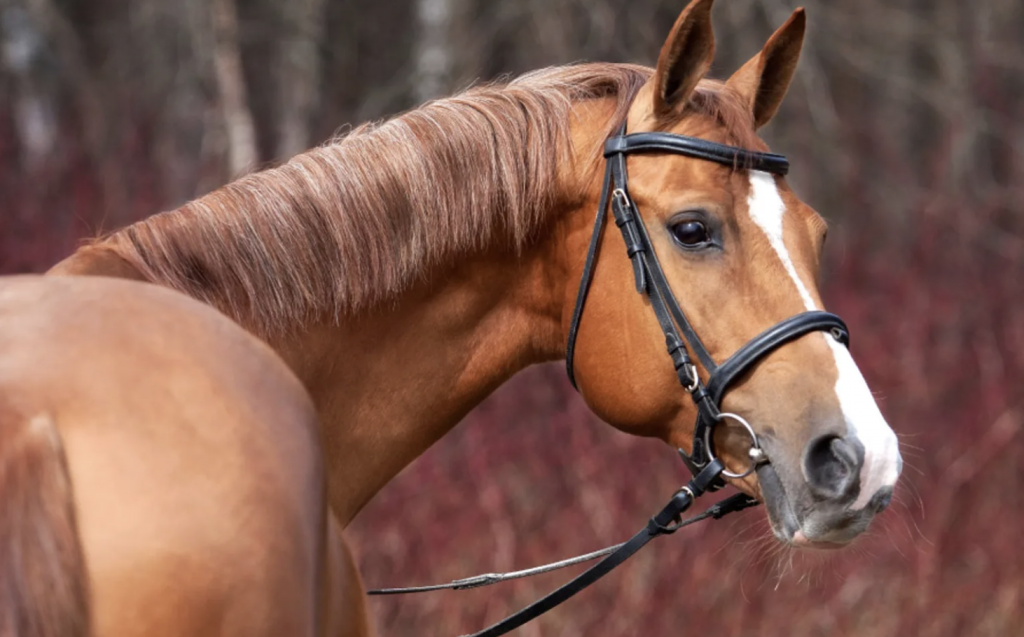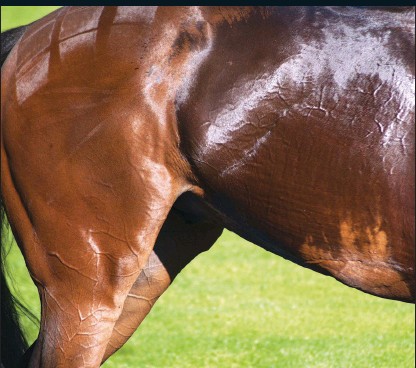If your horse has had some time off and it’s time to bring her back into condition, it must be approached very carefully. Caution should be taken so that she works up to a sweat to increase her fitness level, but not so much that she overexerts. Overexertion can lead to serious complications, including tying up.
Tying up is technically called exertional Rhabdomyolysis, it is a serious condition in which muscle tissue breaks down rapidly and releases a protein called myoglobin into the bloodstream. In some cases, damaged or dying muscle cells can release enough toxic debris into the bloodstream to put tremendous stress on the kidneys.
The exact causes of rhabdomyolysis in horses can vary, but it’s commonly associated with strenuous exercise, particularly in horses that are not properly conditioned or are prone to the condition. Some horse breeds are more predisposed to rhabdomyolysis than others because of specific disorders with cellular dysfunctions in the muscles.

Horses with exertional rhabdomyolysis might show symptoms such as muscle stiffness, profuse sweating, reluctance to move, muscle tremors, and an elevated heart rate. She might come to a halt with massive cramping, usually in the hindquarters, perhaps taking only short strides. She might stab her toes into the ground. You may also notice a “colicky” look in her eye, and her urine may almost look the color of coffee. The condition can range in severity from mild discomfort to more severe cases that require immediate veterinary attention or it could be fatal.
- As you wait for us to arrive keep her very still. This isn’t like baseball; she’s not going to “walk it off”. Forcing her to move may cause severe injury to her muscles. If it isn’t safe for her to be where she is when it happens, you need to bring the trailer to her and only allow her to take a few steps.
- Encourage her to stay calm. She is feeling very confused, stressed, and painful. If she has a buddy, you can bring him close by. It’s fine if she wants to take small bites of hay, so you can offer that.
- Give her some water, possibly with electrolytes. Plain water is fine, too.
- If it’s cold outside, try to warm her up by placing a blanket over her hindquarters. If it’s hot, sponge her with cool water. It is a myth that cold water will cause further cramping.
- If you can, catch some urine for us to check when we get there. If you can’t catch it, take note of the color.
- Monitor for other complications. There are metabolic imbalances associated with this and fatigue can lead to other problems. If her diaphragm is “thumping” or if she has a tic or is jerking to the rhythm of her heartbeat she could be going into hyperthermia (overheating). Watch for agitation, panting through the mouth, dark mucous membranes, and skin that doesn’t snap back into place after being pinched. She could become dehydrated.
- In some cases, she may lose the ability to sweat.

IF ANY OF THESE SYMPTOMS OCCUR, IMMEDIATELY NOTIFY US WITH AN UPDATE, AS THIS IS A CRITICAL CONDITION.
To help manage and prevent tying up in horses, it’s important to:
- Proper Conditioning: Gradually increase the intensity of exercise to improve muscle fitness and reduce the risk of sudden overexertion.
- Balanced Diet: Provide a balanced diet that meets the nutritional needs of your horse, particularly in terms of electrolytes, vitamins, and minerals.
- Hydration: Ensure your horse stays well-hydrated, especially during exercise and hot weather.
- Regular Exercise: Regular, consistent exercise can help prevent muscle stiffness and reduce the likelihood of sudden intense activity.
- Monitor Symptoms: Be vigilant for signs of rhabdomyolysis such as stiffness, sweating, reluctance to move, and muscle tremors.
If you suspect your horse is experiencing rhabdomyolysis, contact us immediately. We can provide a proper diagnosis and recommend appropriate treatment, which might include rest, pain management, and addressing any underlying factors.
Remember, only a veterinarian can provide accurate advice and treatment tailored to your horse’s specific needs. If you’re concerned about tying up or any other health issues your horse might be experiencing, it’s important to seek professional veterinary care. Rocky Valley Veterinary Services has been providing elite medical care to horses all over East Tennessee. Call us to schedule a visit. 865-566-8359.

Leave a Reply